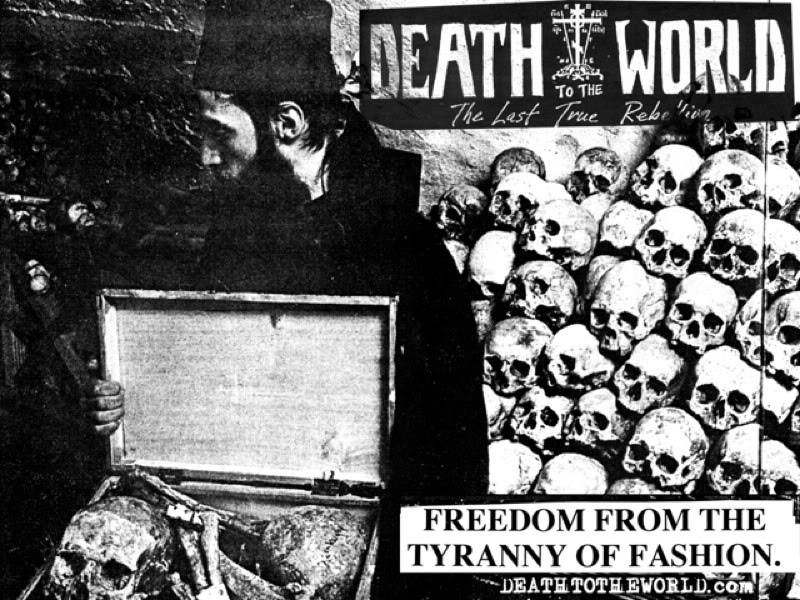Originally Posted by Thekla

I think this can indeed be a genuine seeking for renewal and restoration; it can in some instances arise from the fact that humans can evaluate better retrospectively than prospectively.
Because of this, we tend to see the value and embrace it retrospectively, when at the start it can be a muddy and confusing thing.
I do wonder if perhaps being able to see better retrospectively than prospectively can depend on the human rather than humanity in general..as it concerns making a general statement on how things are evaluated. For many times, people made ALOT of good predictions even when much from the past wasn't present to be evaluated---and other times, people had the best information available and still messed up with the future, just as people looked back and still saw poorly in retrospect while others did otherwise.
And sometimes, predictions can be wild. Who would have thought, in example, that those inventing the airplane would have succedded? For many thought the Wright Brothers were crazy for what they did...and the same with others who did things like thinking it was possible to vaccinate others to be immune from diseases or to go to the moon. Yet all of those things, in retrospect for us, seem common...with others thinking "Of course you can fly and go to the moon!!!!!" while others before would have thought otherwise.
Sometimes, all one truly has is a dream...and as one of my friends/sisters in Christ once said, many of the things people celebrate within the realm of invention (especially those things that have changed others) are things we look back and say "I wish I had thought of that!!!!" when the reality is that the thought wasn't what made the difference. For most of the people who became noted for their innovative inventions were simply people who acted on the thought when many others had it and did nothing with it since they didn't think it was worth it. They were willing to take a risk.....and see the reality of chance at play, which does impact us all.
Ecclesiastes 9:11
I have seen something else under the sun: The race is not to the swift or the battle to the strong, nor does food come to the wise or wealth to the brilliant or favor to the learned; but
time and chance happen to them all.
Ecclesiastes 9:10-12
Even with the Desert Fathers doing as they did (as it concerns restoration/innovation), part of me has wondered if it was possible that they weren't the first to necessarily have the thoughts they did...and they simply happened to act on their thoughts at the right time. If others had chosen not to go into the Desert at all, mabye it would have occurred centuries later (although a different timeline/trajectory would be in place since other unknown factors would be at play if they never left to begin with)---and perhaps we'd be hearing of others who were the "Artic Wilderness" fathers if Empires in colder regions had the same dynamics develop as with the Byzantine empire.

Or the "Jungle Fathers" in the event that others decided to flee empires into the Jungles of Africa and other places once Imperial reach extended near those areas.
Reminds me of the scene from
Back to the Future 2 when they changed history/had no idea how differnet things could have been if one or two things got out of whack.
St. Symeon the New Theologian is interesting - he was actually interested in return/restoration to what had been somewhat lost in the faith.
For what he did, he will always be one of my favorites...and someone I greatly admire in the faith

I'm one of those who thinks everything is colored by cultural expression

(And I truly value Orthodoxy's ability to absorb and lift the 'local' cultural expression to the service of Christ.)
Cool to know, as I'm right there with ya

The Church is a sort of microcosm and foretaste, I agree. The process of selection from a culture (called by one bishop a people's "store of value") can take time. For example iirc, John of Damascus selected from the 12 Pythagorean tones 8 that were deemed suitable for worship (the origin of ochtoechos).
It's getting harder for this to happen - to find authentic cultural forms, that arise and contain value, as it seems presently we are undergoing a sort of de-culturization vis a vis globalization. Cultural expressions become "cute", or commodities. IMO, this is the 'Madison Avenue effect', which tends to empty things of content leaving just form.
Definately feeling you on what you're saying with John of Damascus and drawing from cultural stores of values...but I think I'd have to respectfully disagree in regards to saying authentic cultural forms are harder to come by due to Globilization. IMHO, if nothing else, the world has become a SMALLER place due to Globilization...with there being alot of things people see in common while others are realize two trajectory tracts: One saying we must all be the same at all points and thus there's a forced agreement that takes place....and the other saying seeing the newer variations of camps means people are more prone to find where their own is and connect with them so as to not lose themselves, leading to a bit of territoralism.
The same concept that happens with cultures seems to also be present in regards to theological cultures coming into greater awareness of those that differ due to how others are able to communicate at greater paces than before. And if I had to best express it, perhaps it'd be good to go with a Sci-Fi example. I have noticed that sci-fi stuff has done a lot of really creative thinking about "otherness" and pluralism.
And on the issue of Sci-Fi, the example I was thinking of was StarTrek.
Within Globilization, be it on a theological level or an anthropological level concerning culture, conformity can often be a huge focus...and there's also the realities of what occurs when Unity is seen in the sense of Conformity/being made to obey and go with "Group-Think"...or the other form of "What the people say is truth is what determines what is real or not"....and as the old saying goes, "
Three men make a tiger" (
Chinese: 三人成虎 ; Pinyin: sān rén chéng hǔ

. It's as a
Chinese proverb or four-character idiom referring to the idea that if an unfounded premise or
urban legend is mentioned and repeated by many individuals, the premise will be erroneously accepted as the truth...and this concept is analogous to
communal reinforcement or the logical fallacy known as argumentum ad populum or
appeal to the people Speaking of truth claims, one example is how most of the religious world once believed that the world was flat----and that was apart of even Christian Thought, with the majority condeming those disagreeing as unbiblical until others found different.
Same happened with others like Gallieo or others who believed that the Sun didn't revolve around the Earth...and many religious people shunned him, including those who were Religious Authorities and saying science/philosophy for God cannot go together--until that was proven otherwise as well. Many times, there's more than enough Biblical warrant for one to say that they disagree (and yet disagree respectfully) without those in a majority assuming that disagreement equates to chaos.
Going back to the Sci-Fi example of StarTrek to show the concept in action (I'm a HUGE STAR-TREK Fan

), one can consider the concept of a "
Borg"---as that's the way I've always approached it, with plenty of times it being where the goal was to "assimilate" for the sake of "perfection"., though they did so by FORCE/USING UNITY in a CONTROLLING MANNER and taking unique traits from various cultures that they wanted for their own and combined them together for their own benefit.
However, they did not allow any individuality in the process of benefiting off of the unique traits since it was for the sake of the whole and not the indiviual that they existed---and in many respects, as they destroyed other traits from species they deemed wrong, they actually were not for preserving "Unique" beings since they did not preserve them as they were. There was still an agenda--and the only way to keep it going was to destroy conscience thought and have men be under the sway of the many voices of "The Collective".
Powerful indeed---but a "living death"...
The other species to consider is the Founders (Changelings) and what was seen in DS9 with "
The Dominion", as they sought to maintain control/subdue that which is "different" than the norm (despite the same happening to them previously when they were persecuted by "Solids" for being different---thus, reacting by believing "What you can control cannot hurt you" and..imposing their version of "order" on others, even those who used to persecute them & fearfully keeping their own race from acknowledging criticisms/siding with the "solids" on the other side or realizing how much they had become that which they hated. Of course, Diversity was allowed in their Empire--but no Diversity that ever challenged the Goals of the Collective, much like living on a block and having a local gang enact a
protection racket whereby a powerful entity or individual
coerces other less powerful entities or individuals to pay
protection money which allegedly serves to purchase protection services against various external threats....giving the illusion of freedom to be indiviual/do as you please but keeping one in line through fear.
The Dominion is, essentially, the anti-Federation. Ruled by the shape-shifting Founders and seen as a collection of alien races, all hell-bent on taking over the known universe...when the Dominion makes its way to the Alpha Quandrant and faces off against the Federation, what results is an interplanetary war that threatens to destroy the entire galaxy..and all of it began because of the desire for FORCED unity...and more specifically, the root behind all of that was FEAR.
Whereas the Borg assimilated others due to mistakenly thinking that they alone in their experiences/views were "perfect" (even though they weren't), the Dominion was built aggressively forced others to agree because their entire culture was centered entirely upon FEAR of what was different...as the
Dominion, created by the
Founders, is built entirely on xenophobia...with the Founders' main aim being based on bringing their style of order to what they see as the chaotic nature of
solids throughout the
universe
In trying to find ways in which all kinds of camps can at least co-exist peacefully ( Hebrews 12:13-15, Romans 12:18, James 3:13-18, Matthew 5:9, Luke 6:27-36, etc), it is my hope that
we do not become like Borg culturally in choosing to force conformity, supresses individuality, and punish team members who express different points of views...as opposed to truly helping others in promoting a a shared set of values and speaking respectfully even in differences
It is also my hope we don't act like the Dominion in choosing to threaten others to agree with us/desire all to think alike simply because we had bad experiences that caused people to be paranoid toward any divergent opinion.....almost in the same way that others can have xenophobia (or be isolationist) and end up reacting badly toward anything that REMOTELY sounds similar to how another culture they had bad relations with MIGHT have said it.
That's another tricky one it seems to me. Certainly form can become an idol (especially when we're 'good at it'. Artists wrestle with this, as practiced forms can lose their vitality.)
Part of the store of Tradition found in retaining older "forms" is the store of 'disposition' and 'mindset'. These are intangibles that belong typically to the realm of the Arts - music, poetry, movement, visual art. This can be seen in the use of various cultural 'conceits' to express the sam intangible in Orthodoxy's spread.
Excellent points






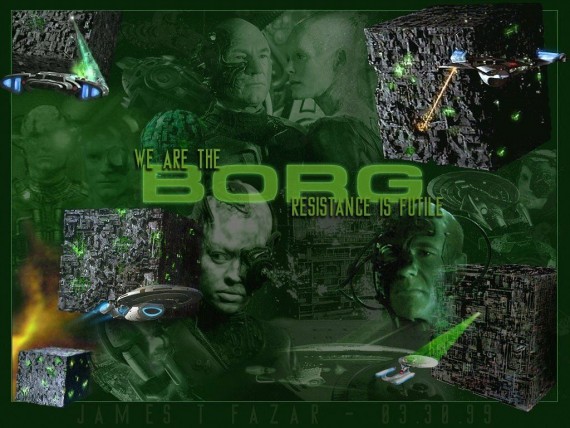



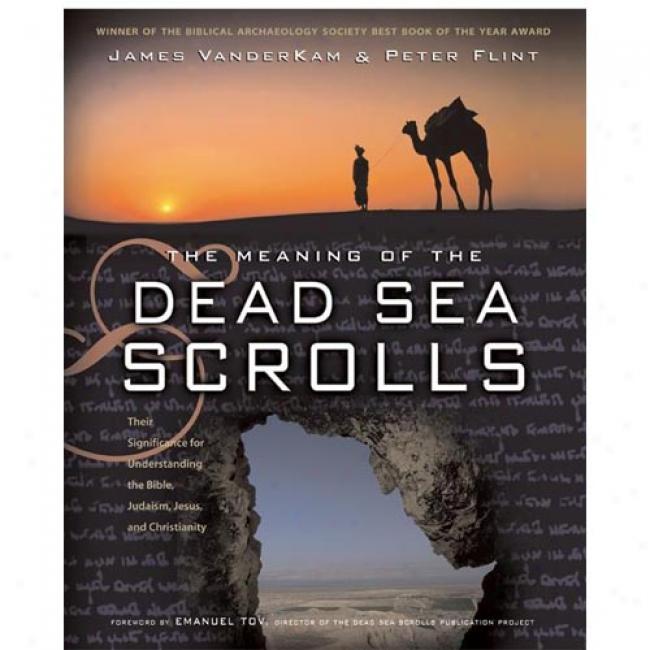






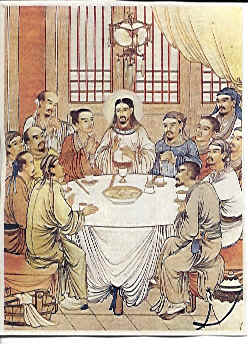





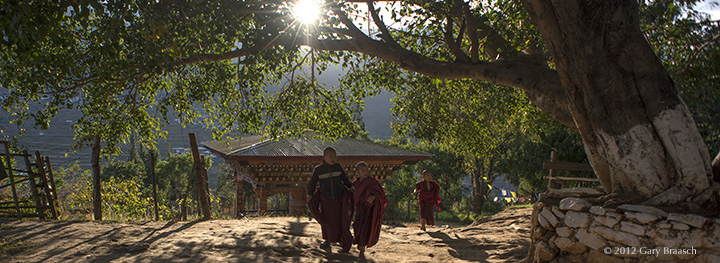

 [/IMG]
[/IMG]







